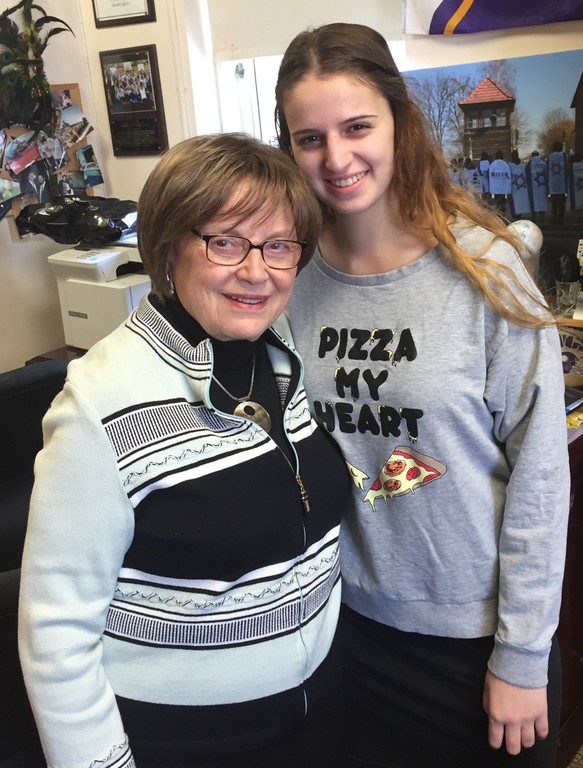HAFTR preps 3d mission to Poland
In preparation for their upcoming mission to Poland, HAFTR High School hosted Itel Landau last Monday.
In April, Rabbi Gedaliah Oppen, High School Judaic principal, will lead the third annual Abe Scharf Memorial Poland Mission to the camps in Poland as well as other important sites in Europe. Together with Rabbi Moshe Hubner, popular rebbe and noted author, the mission aims to convey to the students the history of the Holocaust, anti-Semitism, and pre-war life in Europe. In preparation for this mission.
The students were extremely fortunate to be addressed by Mrs. Landau, great-aunt of Rabbi Baruch Fogel, a high school rebbe. A native of Vishov (Vişeu de Sus in Northern Romania), Mrs. Landau described her childhood and shared a picture of her second grade Bais Yaakov class. She also showed pictures from the town’s yeshiva to impart to the students the vibrancy of the pre-war Jewish life in her town.
From her escaping the factory and ghetto in Debrecin where she was being held to her chance to flee to Romania, Mrs. Landau communicated what life was like for the Jews in Hungary in the spring of 1944. One student remarked that after many hours of learning about ghettos and deportation, it was clarified in her mind now that she can understand that it was also a story of each and every person that lived and suffered it.
Mrs. Landau described her experience enroute to, and in, Auschwitz. The students were moved by her description of her experiences. She described how she and some family members were sent to a forced labor camp, and how they were eventually liberated by the Americans.
One story in particular had a profound effect on the students. Mrs. Landau told the students that during Pesach 1945, she and her family refused to eat bread even though they were emaciated and starving. “The enjoyment of being able to keep Pesach as well as show the Germans who was really in charge was much greater than eating,” she said.
Mrs. Landau ended her speech with her personal post-Holocaust story, as well as imparting what she believes is the most important lesson for the students to take with them. She told them how at one point in Debrecin, she noticing that it was devoid of people and life after the Jews had been rounded up to the ghetto. She began to sing a song that her sister used to sing.
The words of the song were Netzach Yisroel Lo Yishaker from Sefer Shmuel, which loosely translated means that the Jewish people are eternal. She said “I did not know if I would survive, but I knew that the Jewish people are eternal.” She then turned to the students and declared, “and that is what YOU are today; you are Netzach Yisroel Lo Yishaker.”

 39.0°,
Fair
39.0°,
Fair 




